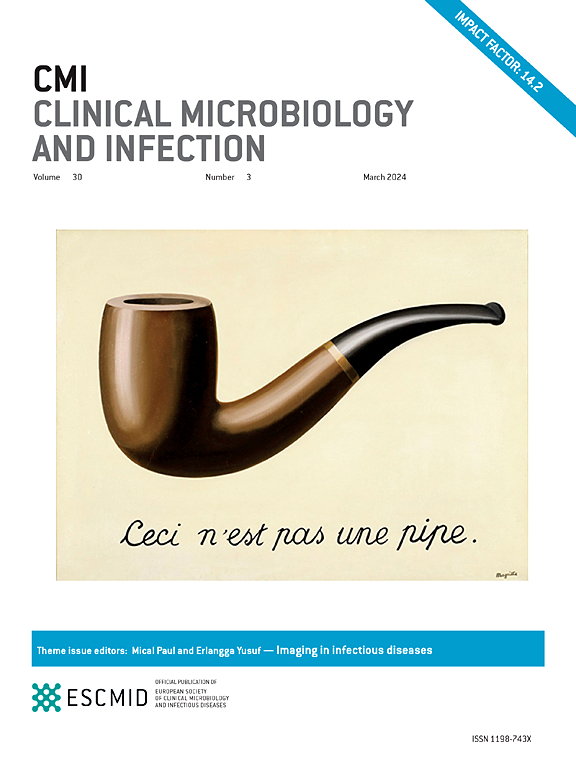Delphi共识:风湿病患者SARS-CoV-2感染的诊断和治疗管理。
IF 8.5
1区 医学
Q1 INFECTIOUS DISEASES
引用次数: 0
摘要
导言:免疫功能低下患者 COVID-19 的临床治疗仍是一项挑战。这项工作旨在达成共识,为风湿性疾病和 COVID-19 患者的临床、诊断和治疗管理提出建议:方法:在对文献进行系统回顾后,选出了一个由 14 位国际专家组成的小组,并采用德尔菲法达成共识。专家组共提出 24 个问题。专家们使用 6 点李克特量表进行投票:1)"非常不同意"(SD);2)"不同意"(D);3)"有点不同意"(SWD);4)"有点同意"(SWA);5)"同意"(A);6)"非常同意"(SA)。要达成共识,需要在最多 3 轮调查中达成简单或累计≥80% 的一致意见。累积同意度的定义是项目 1-2 (SD + D);2-3 (D+SWD);4-5 (SWA+A);或 5-6 (A+SA)的回答百分比之和,将强烈同意(A+SA)或不同意(SD+D)与中度同意(SWA+A)或不同意(D+SWD)区分开来:经过三轮讨论,就 24 个问题中的 23 个达成了共识,并提出了 10 项建议:结论:德尔菲法可在科学证据不足的领域就建议达成共识,在等待更好的证据时,可考虑将这些建议用于风湿病患者的管理决策。本文章由计算机程序翻译,如有差异,请以英文原文为准。
ORCHESTRA Delphi consensus: diagnostic and therapeutic management of SARS-CoV-2 infection in patients with rheumatological diseases
Objectives
The clinical management of COVID-19 in immunocompromised patients remains a challenge. This work aimed to develop a consensus to establish recommendations for the clinical, diagnostic, and therapeutic management of patients with rheumatic diseases and COVID-19.
Methods
A panel of 14 international experts was selected, and Delphi methodology was used for the consensus, after a systematic literature review. Twenty-four questions were formulated and presented to the panel. The experts voted using a 6-point Likert scale (1) ‘Strongly disagree’ (SD); (2) ‘Disagree’ (D); (3) ‘Somewhat disagree’ (SWD); (4) ‘Somewhat agree’ (SWA); (5) ‘Agree’ (A); (6) ‘Strongly agree’ (SA). To establish consensus, simple or cumulative agreement ≥80% was required over a maximum of three rounds. Cumulative agreement was defined as the sum of response percentages on items 1–2 (SD + D); 2–3 (D + SWD); 4–5 (SWA + A); or 5–6 (A + SA), distinguishing a strong degree of agreement (A + SA) or disagreement (SD + D) from a moderate degree of agreement (SWA + A) or disagreement (D + SWD).
Results
After the three rounds, consensus was reached on 23 of the 24 questions and 10 recommendations were made.
Discussion
The Delphi methodology allowed consensus on recommendations in areas with insufficient scientific evidence, which can be considered for decision-making in the management of patients with rheumatological diseases while awaiting better evidence.
求助全文
通过发布文献求助,成功后即可免费获取论文全文。
去求助
来源期刊
CiteScore
25.30
自引率
2.10%
发文量
441
审稿时长
2-4 weeks
期刊介绍:
Clinical Microbiology and Infection (CMI) is a monthly journal published by the European Society of Clinical Microbiology and Infectious Diseases. It focuses on peer-reviewed papers covering basic and applied research in microbiology, infectious diseases, virology, parasitology, immunology, and epidemiology as they relate to therapy and diagnostics.

 求助内容:
求助内容: 应助结果提醒方式:
应助结果提醒方式:


